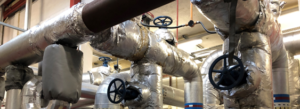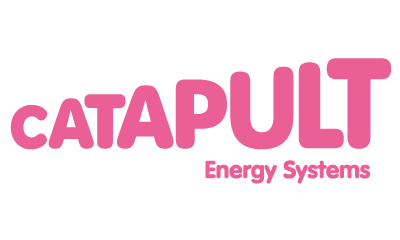5 tips to avoid energy waste this winter
With price per kWh of energy having increased significantly and set to increase further, it has never been more important to ensure that organisations use their energy efficiently and avoid waste.
‘Heating costs rise by about 8% for every 1°C of overheating.’ Carbon Trust
With Autumn and Winter upon us it is important to check that your heating controls are optimised to avoid unnecessary heating and as such energy waste and additional costs.
The first thing you need to know is how much energy is being consumed and when in granular detail (30 minute data). Without this information it will be difficult to identify energy waste, confirm changes have worked and to quantify the value of these changes.
We identify energy waste and eliminate it by utilising the data captured in the ecoDriver energy management platform and the work we carry out in our Decarbonisation Services and Collaborative Energy Efficiency Programmes (CEEP).
Below we have listed 5 energy saving tips to check before heating systems come online
- Check heating setpoints are consistent, set appropriately and checked regularly. Can the default setpoint be reduced by 1 or 2°C?
Example: We commonly find setpoints have been adjusted to higher than required, typically in response to a request for additional heating (sometimes with the incorrect assumption that configuring a much higher setpoint will heat the room quicker), but are never reset.
- Check if your building controls have weather compensation enabled and that it is configured correctly.
Rather than the heating source being turned on/off at a given time every day according to a pre-set weekly schedule and setpoint, it should be responsive to internal space and outside air temperature and be enabled only when necessary with the heat delivered by your heating system being kept as low as possible to maintain the desired space temperature setpoint.
Example: While building controls might have weather compensation they can be incorrectly configured. An example is a system that had an average internal temperature being incorrectly calculated resulting in significantly higher heat demand than was actually required. How many times do you find windows open above radiators too hot to touch?
- Check if the building control system has optimised start/stop and that it is configured correctly.
Optimised start/stop learns how long it takes to heat a space to a desired temperature in relation to outside air temperature or how long internal space temperature is maintained and adjusts start/stop times accordingly.
Example: We find heating control systems configured to turn on hours before occupancy when the reality is that the space reaches temperature much quicker.
- Check heating schedules regularly.
Where building controls are simpler and only have options for on/off schedules, ensure that the schedules are set appropriately and that they have not changed (schedules changed to accommodate one off events and not changed back). Verify that the heating systems come online according to these schedules by reviewing the energy consumption in ecoDriver corelates.
Example: We audited schedules associated with a buildings heating, the schedules were defined to come on at pre-defined times during the week and to be off at weekends. By analysing the ecoDriver data we found that the heating system remained on out of hours and at weekends. There was a sensor fault overriding the schedules resulting in significantly higher energy consumption.
- Engage with building occupants
We find that a transparent and engaging approach to energy efficiency will result in a more collaborative approach to energy reduction. By promoting energy efficiency efforts (what and why) and celebrating success there is a greater opportunity to nudge occupants into greater energy efficiency.
Example: If occupants are aware of a change to the heating setpoint and the reasons for doing it, they might be more likely to wear warmer clothes / layers rather than requesting a higher temperature setpoint.
It might be that your organisation does not have the time, expertise or resource to conduct these types of audits and if that is the case we can provide services to support you quickly so as to avoid energy waste when heating systems come online.




